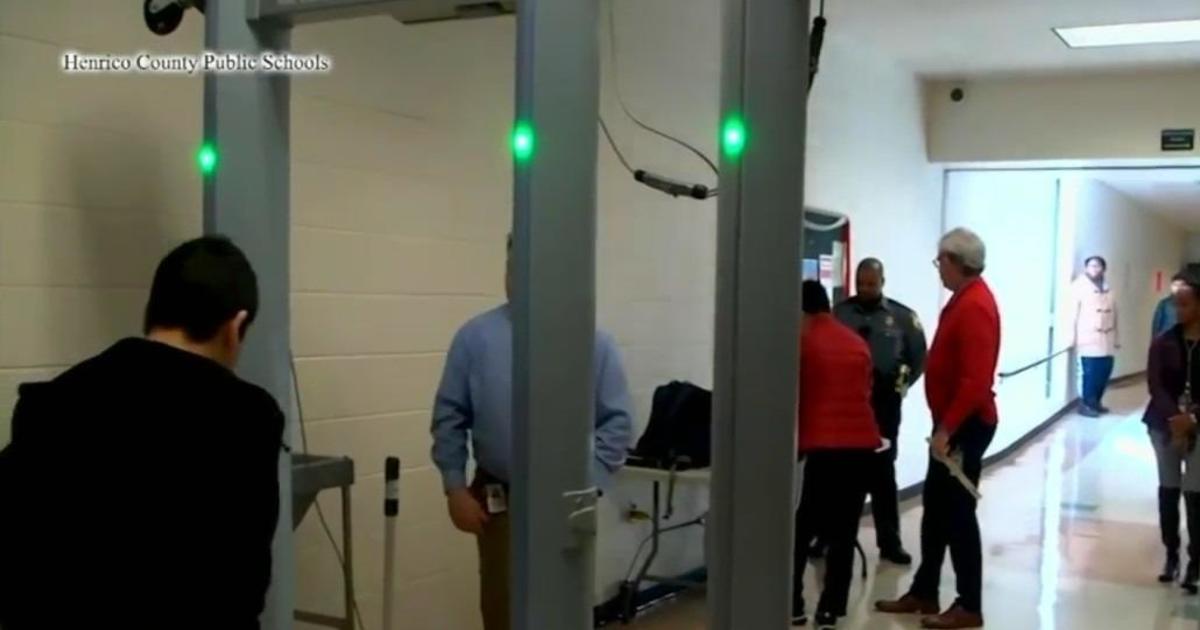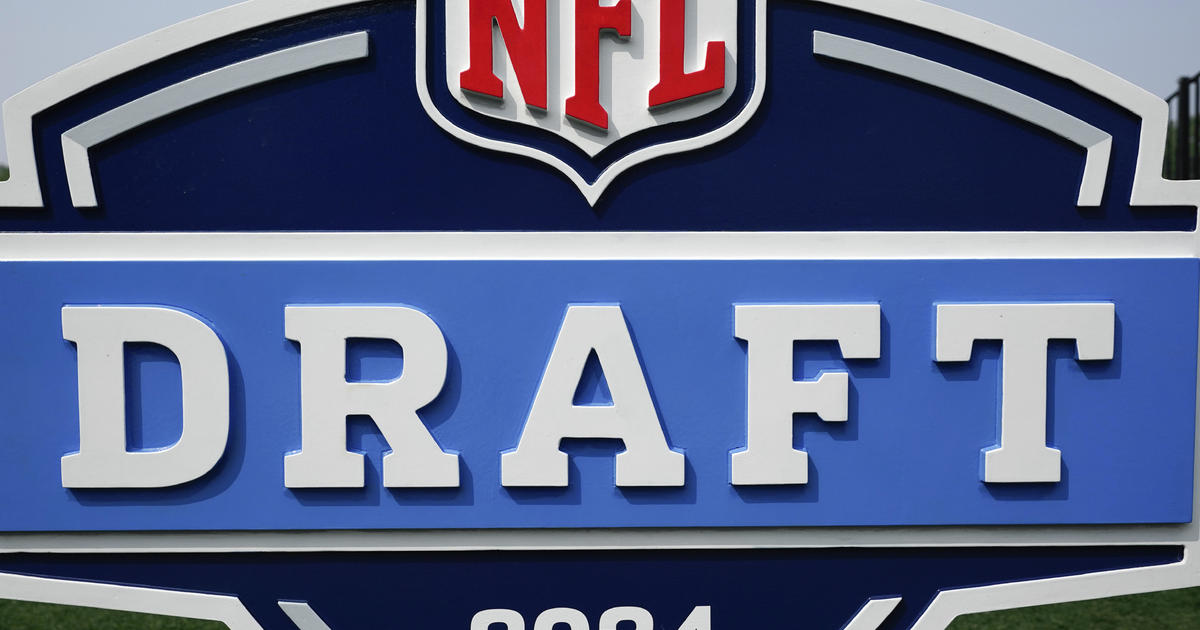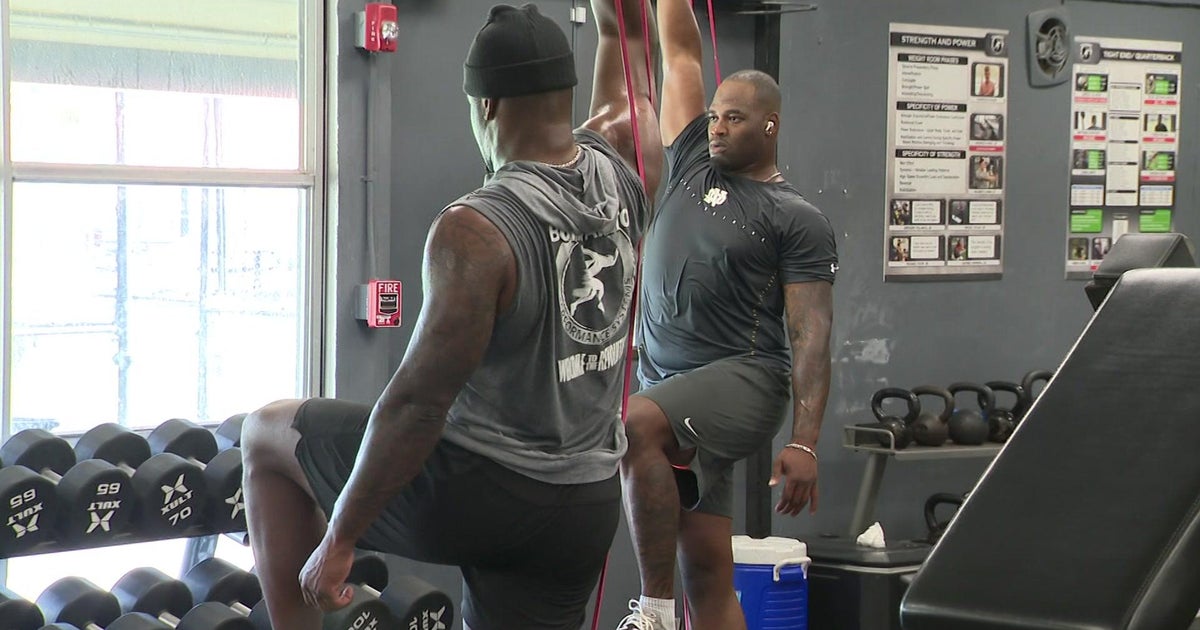Veitch Widower: Leyritz Sentence Won't Be Enough
FORT LAUDERDALE (CBS4) -- Two days after former New York Yankees baseball player Jim Leyritz was acquitted of DUI manslaughter in the death of his wife, Jordan Veitch tells CBS4 that he is "unhappy" that Leyritz faces no more than six months behind bars for the charge he was convicted of: DUI, a misdemeanor.
"I wasn't happy with this decision," Veitch told CBS4's Peter D'Oench. "I don't think he meant to kill my wife in any way, shape or form. But if he gets the maximum of six months, and I don't know what he will when he is sentenced on December 2nd, what is that for the loss of a life? He was drinking."
"My wife wasn't wearing a seat belt," said Veitch, "and she shares some of the blame. But drinking and driving, there are no winners. Don't get behind the wheel if you are drinking. It can be so irresponsible and you affect the lives of so many people when something happens."
On Saturday, a jury has acquitted former major league baseball player Jim Leyritz of DUI manslaughter in a 2007 crash that killed Veitch, a mother of two. However, jurors on Saturday did convict Leyritz of driving under the influence, a misdemeanor.
Testimony was inconclusive on whether Leyritz ran a red light or had a yellow just before the wreck happened on Dec. 28, 2007 when he collided with a vehicle driven by 30-year-old Fredia Ann Veitch, who died.
"I am convinced that Leyritz ran a red light," said Veitch. "The first statements of eyewitness Bruce Barger was that the light was red in the intersection and Leyritz went through it. Then Barger spoke to an attorney and said he was not sure."
Leyritz burst into tears when the verdict was read, hugged his mother, attorney David Bogenschutz and other friends and family members. In an interview, he criticized the investigation as shoddy and the trial as unnecessary.
"If it had been investigated properly from the beginning, we wouldn't be here," said Leyritz. "I wouldn't wish this on anybody. It's been a horrible situation for everybody."
Veitch told D'Oench that Leyritz showed no remorse and little sensitivity to his family's plight during the trial.
"In my eyes, to me, he showed no compassion," said Veitch. "You could tell by the way he looked at us during the proceedings. He didn't show any remorse at all. You can tell just looking into his eyes."
Prosecutor Stefanie Newman acknowledged it was a tough case to prove but felt she had enough to convict Leyritz of the more serious charge.
"We thought the evidence was sufficient, but the jury thought otherwise," Newman said.
Juror Sharon Wessinger said "there's no doubt" in her mind that the light was yellow for Leyritz -- meaning that Veitch would have run the red.
Jury foreman Brian Hall said the panel wanted to send a message that drinking heavily before driving was not acceptable -- but no juror believed Leyritz had committed manslaughter.
"When you look at the manslaughter part of the case, it's not provable either way," Hall said. "It's just two people who made bad decisions that night."
Jordan Veitch meanwhile told D'Oench that he had to move on and will do so after attending the sentencing for Leyritz on December 2nd.
"I will wake up tomorrow and I will take my son to school. We have to go on with the rest of our life. We have to move on," said Veitch. "We just can't dwell on this forever. It doesn't do anyone any good."
"And we have our memories of Freddy," said Veitch. "She was a good person. A fun loving person."
On the night of the crash, Leyritz had been celebrating his birthday at local nightspots, according to trial testimony.
Leyritz, 46, faced between four and 15 years in prison if he had been convicted of DUI manslaughter.
The jury deliberated the fate of Leyritz on Saturday after it was unable to agree on a verdict Friday. Jurors said they were deadlocked on the DUI charge, not the manslaughter charge. The judge ordered them back to the jury room for another try.
The six-person jury viewed video of Leyritz during his field sobriety test and spent five hours discussing the case Friday.
The jury received the case late Thursday after closing arguments and a 10-day trial.
When jurors gathered for deliberations on Friday, one of the first things they asked for was the depositions from Bruce Barger, who was in Leyrtiz's car; and Garth Henry, who was walking down the street and saw the accident.
Jurors deliberated for two hours Thursday night and ate a late dinner of pizza before being sent home by Judge Marc Gold, over the objection of defense attorney David Bogenschutz.
Jurors did not consider the charge of DUI manslaughter based on impairment. The judge in the case threw the charge out Thursday afternoon. Jurors will decide whether Leyritz had a blood alcohol level over the legal limit of .08 when the fatal accident occurred.
After ten days of testimony, the jury sorted through conflicting expert testimony about whether Leyritz was drunk. Jurors also had to decide if Leyritz ran a red light or only a yellow light.
Prosecutor Stefanie Newman told jurors there was ample testimony -- including from a passenger in Leyritz's car who said he tried to warn Leyritz -- that he was about to run a red light.
"You don't tap someone on the shoulder and say, 'Whoa, whoa, whoa' because the light is yellow," Newman told jurors in her closing argument. "You tap someone on the shoulder because you see, 'Whoa, whoa, whoa' you're not looking. That light's red.
"James Leyritz went through a red light. He had 4 seconds yellow prior to going through that intersection."
But Leyritz's attorney David Bogenschutz said it's possible the light was yellow.
"If Jim Leyritz was in any part of that intersection on a yellow light, he is not guilty legally or factually," Bogenschutz told jurors.
And -- in a possibly ominous sign for the prosecution -- one of the alternate jurors released from the case said had he been part of the deliberations, he likely would have voted to acquit.
"I can't see that the evidence is there that he ran the red light," Ralph Brandenburg said, before adding "a simple recommendation -- not as a juror but as a person -- if you stay away from the alcohol you probably wouldn't have this problem."
A defense expert testified Wednesday that Leyritz wasn't drunk. Toxicologist Dr. Stefan Rose testified that Leyritz had a blood-alcohol level under Florida's 0.08 percent limit when crash occurred. Rose said Leyritz's alcohol level rose to 0.14 percent hours after the crash because he had a vodka shot minutes earlier.
Prosecution experts earlier estimated a crash-time 0.19 percent alcohol level for Leyritz.
Another defense witness, Dr. Mazyar Rouhani, said he prescribed medication for a concussion for Leyritz a day and a half after the crash. This is key, defense attorney David Bogenschutz said, because a concussion affects how fast a person's stomach empties, which could have skewed Leyritz's later blood test results.
Leyritz told the doctor his head struck the windshield of his Ford Expedition, although the vehicle bore no cracks or other signs of that.
The prosecution rested last week after a crash reconstruction expert said Leyritz wasn't speeding before the crash that killed Veitch.
Testifying for the prosecution, crash expert Donald Felicella said based on the damage to Leyritz's red Ford Expedition and other factors, his vehicle was going about 35 mph -- the posted speed limit -- when it approached the intersection shortly after 3 a.m. on Dec. 28, 2007.
"There was not anything to indicate that speed was a factor," Felicella told jurors, adding later that airbags did not deploy in either vehicle and there was no indication that either driver hit the brakes.
Leyritz, remembered for his dramatic 1996 World Series home run for the New York Yankees, is accused of driving drunk, running a red light and slamming into a Mitsubishi Montero driven by Veitch. Leyritz's blood-alcohol level was 0.14 percent about three hours after the crash, well above Florida's 0.08 percent limit, and may have been as high as 0.19 percent when the crash happened, according to trial testimony.
Veitch, a mother of two, was thrown from her vehicle by the impact of the crash. Evidence shows that she was also drunk, with a blood-alcohol level of 0.18 when the collision occurred, and was not wearing a seat belt.
The misdemeanor conviction carries a maximum six-month sentence. Circuit Judge Marc Gold said a sentencing date for the DUI conviction would be set in a few weeks.



